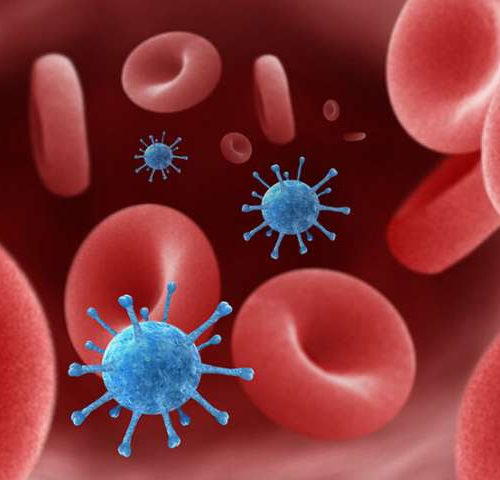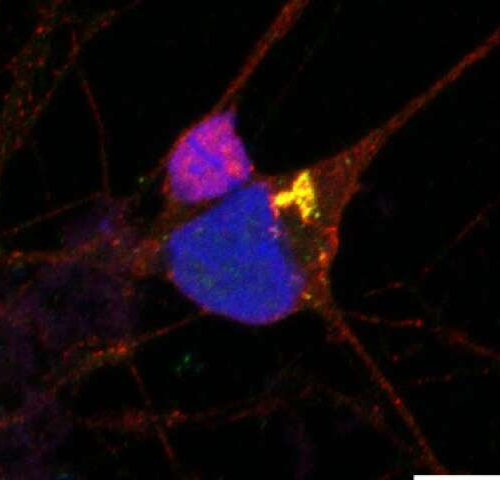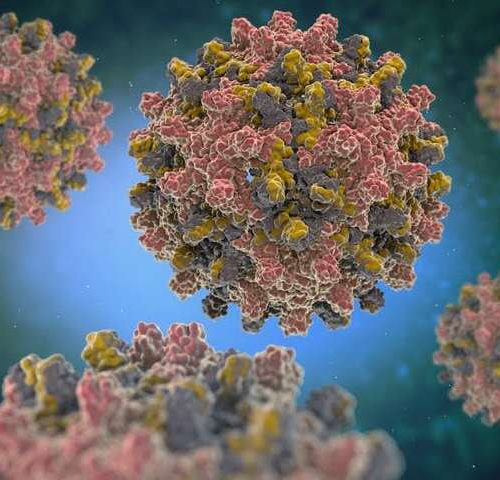Researchers at the University of Cincinnati have developed a tiny portable diagnostic device that can detect the presence of specific pathogens in a saliva sample, and relay the results to a doctor when plugged into a smartphone. The device can potentially diagnose a wide array of diseases, including malaria, HIV and Lyme disease, and could...
NMR Reveals the Benefits of Sorbus Berries on Diabetes
Type 2 diabetes is a global health issue characterized by a progressive decline in insulin production that leads to high levels of glucose in the blood — hyperglycemia. The incidence of type 2 diabetes has been steadily rising, and the condition is now estimated to accounts for 90–95% of the 425 million cases of diabetes...
Fit to burst: How cancer-exploding viruses are changing the game
by Institute of Cancer Research You awake in the middle of the night from a nightmare. In the nightmare, you are standing in a room that is completely full, floor to ceiling, of balloons. There are red ones, purple ones, yellow ones and green ones. You’ve been told to burst only the green and purple...
First-of-its-kind hydrogel platform enables on-demand production of medicines and chemicals
A team of chemical engineers has developed a new way to produce medicines and chemicals and preserve them using portable “biofactories” embedded in water-based gels known as hydrogels. The approach could help people in remote villages or on military missions, where the absence of pharmacies, doctor’s offices or even basic refrigeration makes it hard to...
Protein closely linked to commonest cause of blindness
An international team of scientists has identified a protein which is strongly linked to the commonest cause of blindness in developed countries when its levels are raised in the blood. The discovery is a major step forward in the understanding of age-related macular degeneration, which affects 1.5 million people in the UK alone. The study,...
Neural Signature Identifies People Likely to Respond to Antidepressant Medication
NIH-funded research used machine learning algorithm to predict individual treatment response February 10, 2020 • Press Release Researchers have discovered a neural signature that predicts whether individuals with depression are likely to benefit from sertraline, a commonly prescribed antidepressant medication. The findings, published in Nature Biotechnology, suggest that new machine learning techniques can identify complex...
Initial protective role of nervous system’s ‘star-shaped cells’ in sporadic motor neuron disease uncovered
by The Francis Crick Institute Support cells in the nervous system help protect motor neurons in the early-stages of sporadic motor neuron disease, according to new research from the Crick and UCL. Motor neuron disease is a degenerative condition which destroys the nerve cells (motor neurons) in the brain and spinal cord, which control movement,...
Alcoholism in the family affects how your brain switches between active and resting states
by Kayla Wiles, Purdue University You don’t have to be a drinker for your brain to be affected by alcoholism. A new study shows that just having a parent with an alcohol use disorder affects how your brain transitions between active and resting states—regardless of your own drinking habits. The study, performed by researchers at...
How sequencing virus DNA could open the door to next generation of cancer vaccines
by Daniel Brewer, The Conversation Cervical cancer is one of the only cancers that can be prevented by a vaccine. This is because around 98% of all cervical cancer cases are caused by the human papillomavirus (HPV), which implants DNA in the genome of human cells, causing them to become cancerous. The HPV vaccine can...
A potential treatment for life-threatening neurological diseases
by University of Barcelona A group of life-threatening neurological conditions affecting children has been linked to an antibody that points to potential treatment, according to an observational multicenter study involving 535 children with central nervous system (CNS) demyelinating disorders and encephalitis, published in The Lancet Neurology journal. The findings suggest that the myelin oligodendrocyte glycoprotein...









